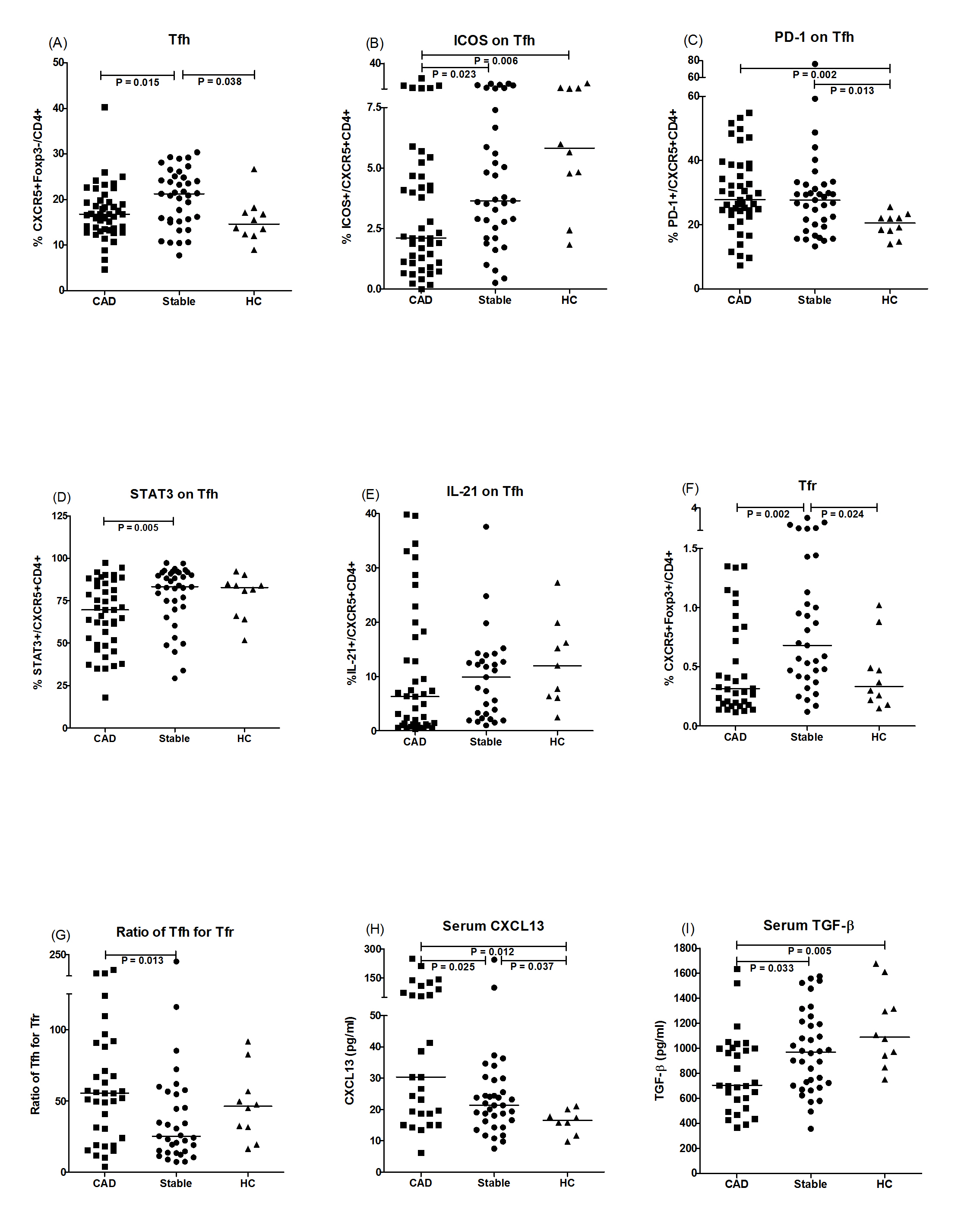Increased Ratio of Circulating Tfh for Tfr Cells in Chronic Renal Allograft Dysfunction: A Pilot Study
West China Hospital OF Sichuan University, Chengdu, China
Meeting: 2019 American Transplant Congress
Abstract number: B46
Keywords: Kidney transplantation, Renal dysfunction, T helper cells, Tolerance
Session Information
Session Name: Poster Session B: Biomarkers, Immune Monitoring and Outcomes
Session Type: Poster Session
Date: Sunday, June 2, 2019
Session Time: 6:00pm-7:00pm
 Presentation Time: 6:00pm-7:00pm
Presentation Time: 6:00pm-7:00pm
Location: Hall C & D
*Purpose: T follicular helper (Tfh) cells play a central role in contribution of B cell differentiation and antibody production. T follicular regulatory (Tfr) cells inhibit Tfh-B cell interaction.
*Methods: To identify whether circulating Tfh (cTfh) and Tfr (cTfr) cells contribute to chronic renal allograft dysfunction (CAD), 82 kidney transplant recipients (45 recipients with CAD, 37 recipients with stable fucntion) were enrolled. The frequency of cTfh and cTfr cells, the level of serum CXCL13 were measured.
*Results: The frequency of cTfh or cTfr cells in CAD group was significantly lower than that in stable group (16.7% vs 21.2%, P=0.015, Figure 1(A); 0.31% vs 0.68%, P=0.002, Figure 1(F), respectively). The ratio of cTfh for cTfr cells in CAD group was significantly higher than that in stable group (55.4 vs 25.3, P=0.013, Figure 1(G)). Serum CXCL13 in CAD group was significantly higher than stable group (30.4 vs 21.3 ng/ml, P=0.025, Figure 1(H)). After linear regression analysis, the ratio of cTfh for cTfr cells was an independent risk factor for eGFR in recipients (Standardized coefficient=-0.420, P=0.012). After logistic regression analysis, the ratio of cTfh for cTfr cells was an independent risk factor for CAD (OR=1.043, 95%CI=1.004-1.085, P=0.031).
*Conclusions: The imbalance of cTfh and cTfr cells contribute to the development of CAD.
To cite this abstract in AMA style:
Yan L, Li Y, Li Y, Wu X, Wang X, Wang L, Shi Y, Tang J. Increased Ratio of Circulating Tfh for Tfr Cells in Chronic Renal Allograft Dysfunction: A Pilot Study [abstract]. Am J Transplant. 2019; 19 (suppl 3). https://atcmeetingabstracts.com/abstract/increased-ratio-of-circulating-tfh-for-tfr-cells-in-chronic-renal-allograft-dysfunction-a-pilot-study/. Accessed February 24, 2026.« Back to 2019 American Transplant Congress

